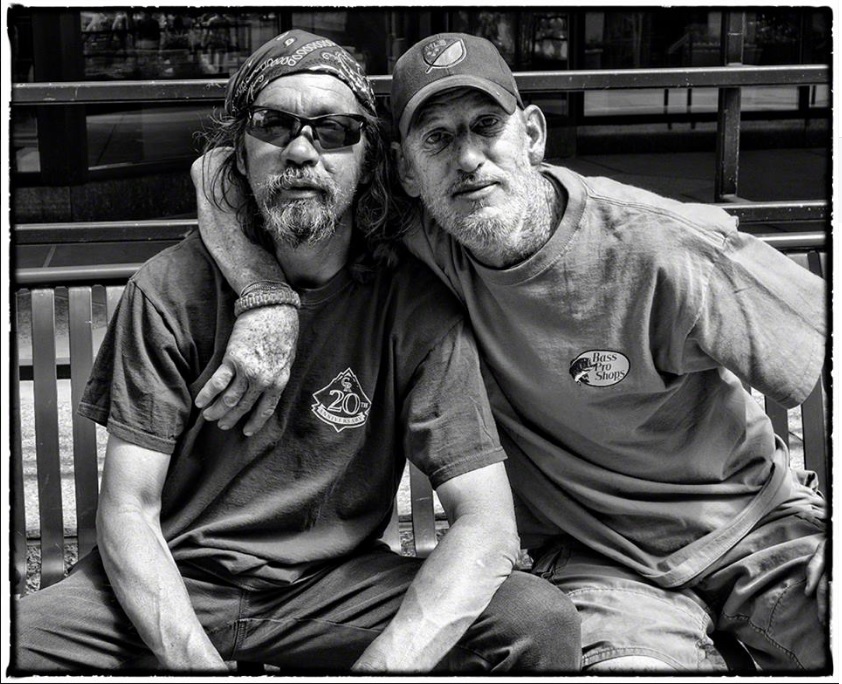Remembering Todd Burton

Todd Burton (left) and Robert “Robbye” Whiteside. Photo by Lynzie Flynn, courtesy of Robert Whiteside and St. Francis Center. By Claire Martin
Todd Burton, who died June 20, 2016, was a familiar sight at the corner of California and 20th streets, seated on his bag and flying a sign that said “SMILE!” Sometimes he played a guitar.
Burton’s guitar was one of the first things that Robbye Whiteside noticed one day about ten years ago. Whiteside and Burton both were in Acacia Park, a popular hangout for the homeless in Colorado Springs. The two got to talking. Burton listened with compassion as Whiteside, emotionally devastated in the wake of his girlfriend’s suicide, talked about his despair. Burton was living on the streets then, and Whiteside had a home, but they shared a sharp sense of humor, riffing off each other like a team of comedians.
The next time Whiteside saw Burton, it was outside Illegal Pete’s in downtown Denver. Burton had a guitar with him again. By then, Whiteside was homeless as well. They each were struggling with mental health issues and an addiction to alcohol, but they still had a knack for wisecracks and comic takes on life.
“The sense of humor we shared was stellar and out of this world,” Whiteside recalled.
“We were very quick-witted, and we had many things in common. We used to call it the Rob and Todd Hour. We had some great laughs and I’m sure those who heard what we had to say will never forget.”
They became such fast friends that they were photographed together for the project “The Homeless Have a Face.” Burton is the one with glasses.
“For the next several years, we stuck together. We watched each others’ backs,” Whiteside said.
He learned that Burton was a talented artist as well as a decent musician. Sometimes Burton talked about his children, who had gone to college, a point of pride for him.
Steve Anson, a Denver VOICE vendor who lives near Burton’s old working territory, passed him nearly every day during his walk to the office. He liked Burton’s “SMILE!” sign, and the drawings Burton made. Burton told him that he used to do construction work, and he did look like someone who worked with his hands and once was pretty muscular.
Anson never learned Burton’s full story, though Burton once confessed he’d run into trouble with the IRS, which made him hesitate to accept government handouts.
Burton’s buddy Whiteside eventually overcame his alcohol addiction, but Burton didn’t. He continued to fly his sign at 20th and California, or down by Illegal Pete’s, sleeping wherever he could find a place. He was staying with a friend in Aurora on the day he died.
“I think of him every day, and I miss him dearly,” Whiteside said.
“He was a genuine human being with love and kindness in his heart.” ■
